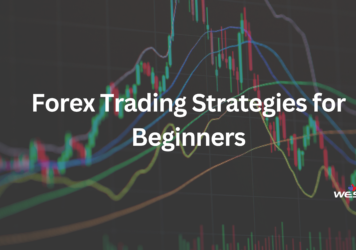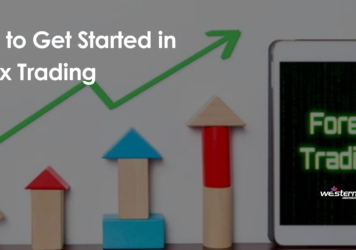Is Forex Trading Gambling
Forex trading often draws comparisons to gambling, with critics arguing that both activities involve high risk and uncertainty. However, a deeper analysis reveals fundamental differences between the two. This article aims to clarify these distinctions, highlight the importance of strategy, and explore the psychological aspects of trading.
Understanding the Basics: Forex Trading Explained
Forex, or foreign exchange, involves the buying and selling of currencies on the global market to profit from fluctuations in exchange rates. Unlike traditional stock markets, the Forex market operates 24 hours a day, five days a week, providing opportunities for traders to engage at any time.
Key Concepts in Forex Trading
- Currency Pairs: Forex trading involves trading one currency against another, such as EUR/USD (Euro/US Dollar).
- Leverage: Traders can control larger positions with a smaller amount of capital, amplifying both potential profits and losses.
- Pips: The smallest price movement in a currency pair, important for calculating profits and losses.
The objective of Forex trading is to capitalize on currency movements rather than relying on chance, which is a key distinction from gambling.
The Psychology of Traders: Risk vs. Reward
The psychological aspect of trading significantly differs from that of gambling. While both involve risk, traders approach their decisions with calculated strategies rather than impulsive decisions based on luck.
Key Psychological Factors
- Emotional Control: Successful Forex traders maintain discipline and emotional stability, avoiding knee-jerk reactions to market fluctuations.
- Risk Management: Traders employ various techniques, such as stop-loss orders, to minimize potential losses.
- Long-term vs. Short-term Mindset: Many traders adopt a long-term approach, analyzing market trends and economic indicators rather than relying on chance.
Understanding these psychological factors can help traders navigate the complexities of Forex markets without falling into gambling behaviors.

Key Differences: Forex Trading and Gambling
| Aspect | Forex Trading | Gambling |
|---|---|---|
| Skill Requirement | High (requires analysis and strategy) | Low (often based on chance) |
| Market Dynamics | Influenced by economic indicators and trends | Random outcomes (e.g., roulette) |
| Risk Management | Utilizes risk mitigation strategies | Limited control over risk |
Forex trading emphasizes skill, informed decision-making, and strategic planning, while gambling often depends on randomness and luck.
The Role of Strategy in Successful Forex Trading
A well-defined trading strategy is crucial for success in Forex markets. Traders should employ various strategies tailored to their trading style and risk tolerance.
Common Trading Strategies
- Scalping: Involves making small profits from frequent trades throughout the day.
- Day Trading: Focuses on executing trades within the same day to capture short-term market movements.
- Swing Trading: Traders hold positions for several days or weeks to capitalize on expected price movements.
- Position Trading: Long-term strategy based on fundamental analysis.
Practical Tips for Developing a Trading Strategy
- Backtesting: Test your strategy on historical data to gauge its effectiveness.
- Stay Informed: Monitor economic news and indicators that can impact currency values.
- Use Demo Accounts: Practice your strategies in a risk-free environment before trading with real money.
Regulatory Framework: Ensuring Fair Play in Forex
Unlike gambling, which is often unregulated or only loosely monitored, Forex trading is subject to strict regulations. Regulatory bodies in various countries oversee trading practices and ensure that brokers adhere to legal standards.
Key Regulatory Bodies
- Commodity Futures Trading Commission (CFTC) in the U.S.
- Financial Conduct Authority (FCA) in the U.K.
- Australian Securities and Investments Commission (ASIC) in Australia
These regulatory frameworks aim to protect investors, ensure fair trading, and promote transparency in the Forex market.
Concluding Thoughts: Is Forex Trading a Form of Gambling?
While Forex trading carries inherent risks similar to gambling, it is fundamentally different in execution, strategy, and regulation. Successful traders utilize informed strategies, risk management techniques, and psychological discipline, whereas gambling relies heavily on chance. Therefore, categorizing Forex trading as gambling overlooks the skills and knowledge required to navigate the marketplace effectively.
In summary, Forex trading is an investment activity that, when approached professionally, can yield substantial returns. Understanding the differences between Forex trading and gambling can help potential investors make informed decisions.
Frequently Asked Questions (FAQ)
- Is Forex trading a guaranteed way to make money?
- No, Forex trading carries significant risks, and while it can be profitable, there are no guarantees.
- Can I make a living from Forex trading?
- Yes, many traders do, but it requires a solid strategy, discipline, and significant market knowledge.
- What is the minimum amount needed to start Forex trading?
- This varies by broker, but many allow accounts to be opened with as little as $100.
- How can I minimize losses in Forex trading?
- Implementing stop-loss orders, managing position sizes, and maintaining emotional discipline can help mitigate losses.
- Is Forex trading legal?
- Yes, Forex trading is legal in most countries, but it is essential to ensure you are trading with a regulated broker.
- Are there any resources to learn Forex trading?
- Yes, numerous online courses, tutorials, and forums exist to help new traders learn about Forex trading.
- What is leverage in Forex trading?
- Leverage allows traders to control larger positions with a smaller initial investment, but it also increases potential losses.











